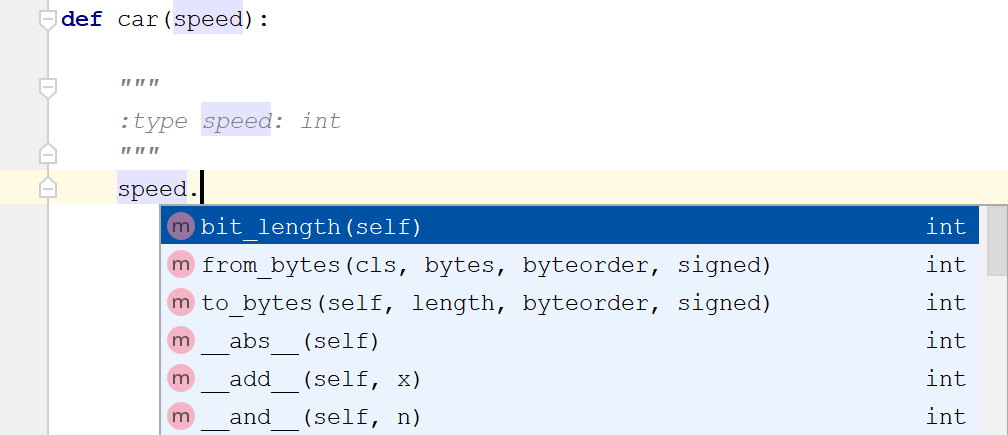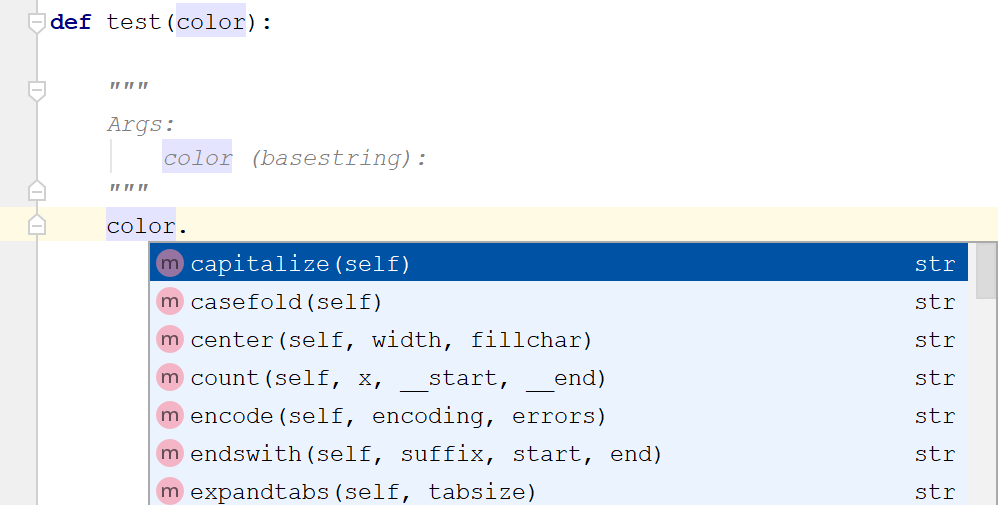Legacy type syntax for docstrings
PyCharm supports legacy approach to specifying types in Python using docstrings. In doing so, the supported formats are:
To choose the desired docstring format, use the Python Integrated Tools page of the Settings/Preferences dialog.
Type syntax in Python docstrings is not defined by any standard. Thus, PyCharm suggests the following notation:
| Syntax | Description |
|---|---|
Foo | Class Foo visible in the current scope |
x.y.Bar | Class Bar from x.y module |
Foo | Bar | Foo or Bar |
(Foo, Bar) | Tuple of Foo and Bar |
list[Foo] | List of Foo elements |
dict[Foo, Bar] | Dict from Foo to Bar |
T | Generic type (T-Z are reserved for generics) |
T <= Foo | Generic type with upper bound Foo |
Foo[T] | Foo parameterized with T |
(Foo, Bar) -> Baz | Function of Foo and Bar that returns Baz |
list[dict[str, datetime]] | List of dicts from str to datetime (nested arguments) |
Specifying types of local variables
Consider adding information about the expected type of a local variable using :type or @type docstrings:
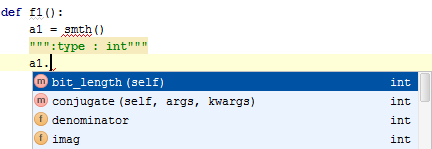
It is also possible to use isinstance to define the expected local variable type:
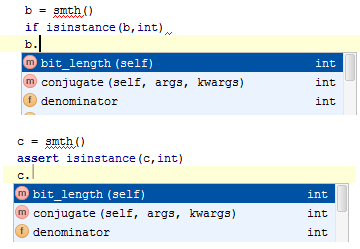
Specifying types of fields
You can use type hinting to specify the expected type of fields:

Alternatively, you can specify types of fields in the docstring of a class:
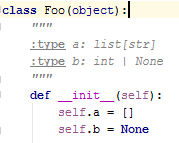
Specifying return types
Use docstrings :rtype or @rtype to specify the expected return type:
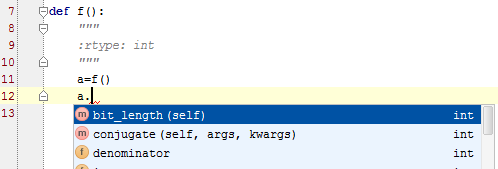
:rtype: collections.Iterable[int] # return type: 'items' is of typegeneratororcollections.Iterable, 'a' is of typeint, see the following code:def my_iter(): global i for i in range(10): yield i items = my_iter() for a in items: print a:rtype: list[int] for my_iter # return type: 'a' is of type
int, see the following code:def my_iter(): for i in range(10): yield i for a in my_iter(): print a
Specifying parameter types
Consider adding information about the expected parameter type. This information is specified using docstrings. You can use different docstrings depending on the selected docstring format, for example, :type, @type, or Args. Use project settings to alter the docstring format ().
